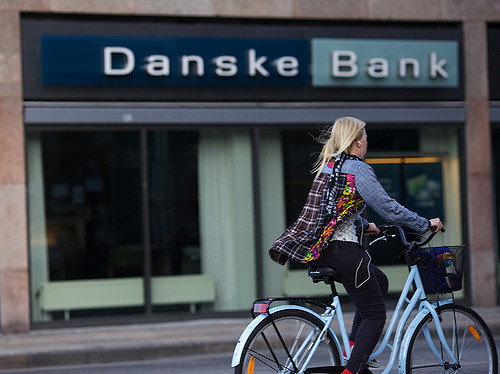
jikatu
The € 200bn laundering scandal through Danske Bank can only be the “tip of the iceberg,” says Stephen Cohn, an American lawyer representing the investigation’s informer from Howard Wilkinson’s credit organization. The investigation should check other major Western banks for participation in illegal schemes, the lawyer said.
"The problem is much broader than it seems at first glance," Cohn told Reuters on the sidelines of the London conference on financial intelligence.
“If the investigation is carried out properly and the money chains can be traced to the end, it will turn out that they lead to large, multinational Western financial organizations. And either the US government or other authorities have the ability to track every transfer and any account,” the lawyer said, without confirming, however, their statements with anything.
Briton Howard Wilkinson worked at Danske's Estonian branch until 2014. Then the media reported that he acted as an informant who helped uncover the billion dollar euro laundering scheme: from 2007 to 2015, a tiny branch was the largest in Europe laundry for dirty money from Russia and the countries of the former USSR.
Wilkinson is due to speak before the Danish and European parliaments next week. However, his testimony is unlikely to be something sensational: he continues to be responsible for any information provided, which could damage his own reputation.
His lawyer, Stephen Cohn, insists that whistleblowers should be rewarded for the information provided. In 2012, he secured a $ 104 million payment to Bradley Birkenfeld, who uncovered a USB tax evasion scheme. Yet, Birkenfeld himself spent 3 years in prison.
According to Kohn, the European approach turns the informants of the investigation into “martyrs”. Lawyers have repeatedly called for somehow compensating the whistleblowers, because they risk falling into the black lists and losing their sources of income. However, European regulators are not in a hurry to introduce financial remuneration for the information provided: they believe that honesty and openness among informants will not increase, but incentives to distort information to get the most benefit, on the contrary, may appear.
source: reuters.com
"The problem is much broader than it seems at first glance," Cohn told Reuters on the sidelines of the London conference on financial intelligence.
“If the investigation is carried out properly and the money chains can be traced to the end, it will turn out that they lead to large, multinational Western financial organizations. And either the US government or other authorities have the ability to track every transfer and any account,” the lawyer said, without confirming, however, their statements with anything.
Briton Howard Wilkinson worked at Danske's Estonian branch until 2014. Then the media reported that he acted as an informant who helped uncover the billion dollar euro laundering scheme: from 2007 to 2015, a tiny branch was the largest in Europe laundry for dirty money from Russia and the countries of the former USSR.
Wilkinson is due to speak before the Danish and European parliaments next week. However, his testimony is unlikely to be something sensational: he continues to be responsible for any information provided, which could damage his own reputation.
His lawyer, Stephen Cohn, insists that whistleblowers should be rewarded for the information provided. In 2012, he secured a $ 104 million payment to Bradley Birkenfeld, who uncovered a USB tax evasion scheme. Yet, Birkenfeld himself spent 3 years in prison.
According to Kohn, the European approach turns the informants of the investigation into “martyrs”. Lawyers have repeatedly called for somehow compensating the whistleblowers, because they risk falling into the black lists and losing their sources of income. However, European regulators are not in a hurry to introduce financial remuneration for the information provided: they believe that honesty and openness among informants will not increase, but incentives to distort information to get the most benefit, on the contrary, may appear.
source: reuters.com


















